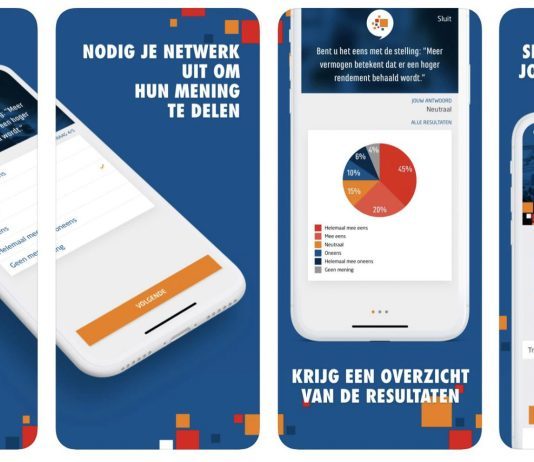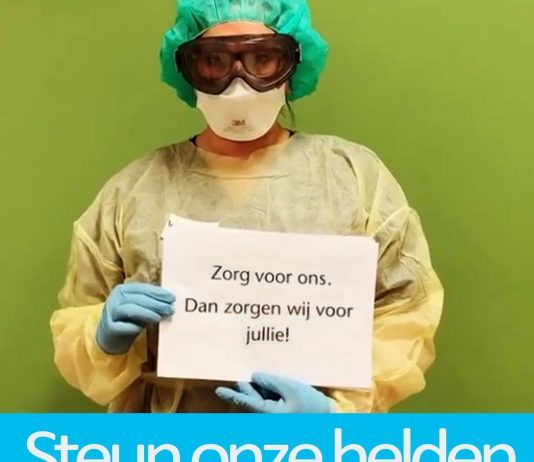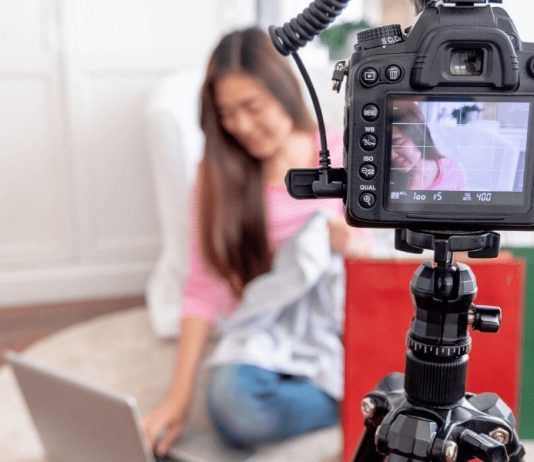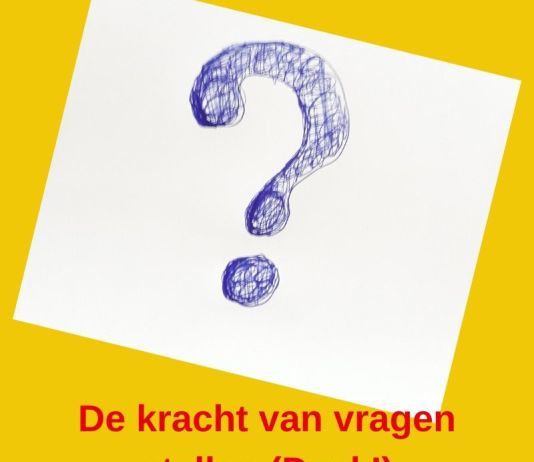Marcel van Marrewijk's Blog, page 26
March 30, 2020
Ondernemers app speciaal voor coronatijden!

De gevolgen van het coronavirus raken vrijwel alle ondernemers in Nederland bijzonder hard. Juist in deze crisis wil ONL ondernemers actief bijstaan in hun bedrijfsvoering én hun belangen behartigen in politiek Den Haag. Daarom is de Ondernemers Nederland app zo omgebouwd dat het ondernemers helpt met betrekking tot de gevolgen van corona.
Je kan de app hier gratis downloaden, op dit moment alleen voor Iphone gebruikers.
Wat doet de app?
De app helpt als ideale link tussen ondernemers & de overheid:
In de app vind je actuele en praktische informatie over ondernemen tijdens de coronacrisis. Welke maatregelen zijn op jou van toepassing? Bij welk loket kun je terecht?
Ook kun je als ondernemer direct persoonlijk advies inwinnen bij de ONL-helpdesk over jouw specifieke situatie (corona@onl.nl).
En via de app kun je je mening geven over belangrijke actuele kwesties. De app is een krachtig middel om continu te monitoren of de maatregelen werken en voldoende zijn. Deze input wordt direct ingezet richting politiek Den Haag
Download de app
Ondernemers app speciaal voor coronatijden!

De gevolgen van het coronavirus raken vrijwel alle ondernemers in Nederland bijzonder hard. Juist in deze crisis wil ONL ondernemers actief bijstaan in hun bedrijfsvoering én hun belangen behartigen in politiek Den Haag. Daarom is de Ondernemers Nederland app zo omgebouwd dat het ondernemers helpt met betrekking tot de gevolgen van corona.
Je kan de app hier gratis downloaden, op dit moment alleen voor Iphone gebruikers.
Wat doet de app?
De app helpt als ideale link tussen ondernemers & de overheid:
In de app vind je actuele en praktische informatie over ondernemen tijdens de coronacrisis. Welke maatregelen zijn op jou van toepassing? Bij welk loket kun je terecht?
Ook kun je als ondernemer direct persoonlijk advies inwinnen bij de ONL-helpdesk over jouw specifieke situatie (corona@onl.nl).
En via de app kun je je mening geven over belangrijke actuele kwesties. De app is een krachtig middel om continu te monitoren of de maatregelen werken en voldoende zijn. Deze input wordt direct ingezet richting politiek Den Haag
Download de app
Ondernemers app speciaal voor coronatijden!

De gevolgen van het coronavirus raken vrijwel alle ondernemers in Nederland bijzonder hard. Juist in deze crisis wil ONL ondernemers actief bijstaan in hun bedrijfsvoering én hun belangen behartigen in politiek Den Haag. Daarom is de Ondernemers Nederland app zo omgebouwd dat het ondernemers helpt met betrekking tot de gevolgen van corona.
Je kan de app hier gratis downloaden, op dit moment alleen voor Iphone gebruikers.
Wat doet de app?
De app helpt als ideale link tussen ondernemers & de overheid:
In de app vind je actuele en praktische informatie over ondernemen tijdens de coronacrisis. Welke maatregelen zijn op jou van toepassing? Bij welk loket kun je terecht?
Ook kun je als ondernemer direct persoonlijk advies inwinnen bij de ONL-helpdesk over jouw specifieke situatie (corona@onl.nl).
En via de app kun je je mening geven over belangrijke actuele kwesties. De app is een krachtig middel om continu te monitoren of de maatregelen werken en voldoende zijn. Deze input wordt direct ingezet richting politiek Den Haag
Download de app
Ondernemers app speciaal voor coronatijden!

De gevolgen van het coronavirus raken vrijwel alle ondernemers in Nederland bijzonder hard. Juist in deze crisis wil ONL ondernemers actief bijstaan in hun bedrijfsvoering én hun belangen behartigen in politiek Den Haag. Daarom is de Ondernemers Nederland app zo omgebouwd dat het ondernemers helpt met betrekking tot de gevolgen van corona.
Je kan de app hier gratis downloaden, op dit moment alleen voor Iphone gebruikers.
Wat doet de app?
De app helpt als ideale link tussen ondernemers & de overheid:
In de app vind je actuele en praktische informatie over ondernemen tijdens de coronacrisis. Welke maatregelen zijn op jou van toepassing? Bij welk loket kun je terecht?
Ook kun je als ondernemer direct persoonlijk advies inwinnen bij de ONL-helpdesk over jouw specifieke situatie (corona@onl.nl).
En via de app kun je je mening geven over belangrijke actuele kwesties. De app is een krachtig middel om continu te monitoren of de maatregelen werken en voldoende zijn. Deze input wordt direct ingezet richting politiek Den Haag
Download de app
Ondernemers app speciaal voor coronatijden!

De gevolgen van het coronavirus raken vrijwel alle ondernemers in Nederland bijzonder hard. Juist in deze crisis wil ONL ondernemers actief bijstaan in hun bedrijfsvoering én hun belangen behartigen in politiek Den Haag. Daarom is de Ondernemers Nederland app zo omgebouwd dat het ondernemers helpt met betrekking tot de gevolgen van corona.
Je kan de app hier gratis downloaden, op dit moment alleen voor Iphone gebruikers.
Wat doet de app?
De app helpt als ideale link tussen ondernemers & de overheid:
In de app vind je actuele en praktische informatie over ondernemen tijdens de coronacrisis. Welke maatregelen zijn op jou van toepassing? Bij welk loket kun je terecht?
Ook kun je als ondernemer direct persoonlijk advies inwinnen bij de ONL-helpdesk over jouw specifieke situatie (corona@onl.nl).
En via de app kun je je mening geven over belangrijke actuele kwesties. De app is een krachtig middel om continu te monitoren of de maatregelen werken en voldoende zijn. Deze input wordt direct ingezet richting politiek Den Haag
Download de app
March 28, 2020
100.000en mondkapjes is het doel van deze doneer-actie!

Stichting 168 Million is samen met 2 verpleegkundigen in Rotterdam, Daniël van der Does en Miguel Jansen, een doneeractie gestart om het tekort aan beschermende middelen in ziekenhuizen aan te vullen.
Henny Mandemaker, Ridder in de orde Orde van Oranje-Nassau, over de actie:
“Het is ongelofelijk wat er om ons heen gebeurt. Ikzelf val in de groep met een verhoogd risico en het zijn erg angstige tijden. Maar ik heb het vooral te doen met de mensen die hun dierbaren verliezen zonder dat ze afscheid hebben kunnen nemen. Heengaan zonder afscheid mag niet.”

Iedere dag zijn er alleen al in ziekenhuizen ruim 100.000 mondkapjes nodig, maar deze zijn er niet. Het kost ongeveer 1,50 euro om één mondkapje naar Nederland te krijgen en hier vragen wij dan ook hulp voor.
Doneren via de website
Verschillende grote spelers uit het bedrijfsleven steunen deze donderactie. Ook kunnen particulier doneren via www.168million.com. Dit kan vanaf 3 euro (dat zijn 2 mondkapjes)
De actie word volledig ondersteund door Branch organisatie GoedeDoelen en stichting 168 Million voldoet aan de strenge voorwaarden van het CBF. 100% van de opgehaalde donatie gaat naar dit project en iedere betrokken bij dit project werkt volledig belangeloos. deze actie staat volledig in het teken van de de helden in het ziekenhuis die dagelijks de strijd aangaan met het Coronavirus.
Waarom deze actie?
Een lid van de 168 Million familie is getroffen door Corona. Er kon geen afscheid worden genomen doordat er geen mondkapjes waren of beschermende kleding was waardoor familie bezoek niet mogelijk bleek. Hierdoor is iemand een stille dood gestoven. Dit gun je niemand en dat mag ook niemand meer overkomen.
The post 100.000en mondkapjes is het doel van deze doneer-actie! appeared first on Seats2meet.
March 27, 2020
Sharing content as a digital knowmad in times of uncertainty

In light of what is going on around us, it’s the perfect time to offer support, inspire and encourage, and create more opportunities by collaborating and building genuine online communities.
The Coronavirus has forced us to think about the way we live, work, and communicate. It’s become clear that we need to be a lot more intentional, adaptable, and tech-savvy (for example, many people had never heard of Zoom before the outbreak).
And this goes for content, too. Being more transparent, showing empathy, and providing value is more important than ever before.
The way we consume content has shifted
Gone are the days of mindlessly slapping together a few words or downloading so-so images and calling that content. We’re bombarded with digital clutter everywhere we turn and attention spans have shortened considerably over the last few years.
One thing that hasn’t changed much?
Authentic connection.
At the heart of content consumption, people still crave connection – a human element to the words we write and the images we capture or design.
To put it simply, if we want our content to create the right impact, it needs to engage and genuinely resonate.
Sharing content as a digital knowmad
One of the most significant developments in the future of work is the rise in knowmads (another word for self-employed professionals). In Amsterdam, around 15% of the labour population is knowmadic, and in the USA, these figures are even higher.
John Moravec, who wrote the book Education Futures, explains the meaning perfectly:
“A Knowmad is a nomadic knowledge worker – that is, a creative, imaginative, and innovative person who can work with almost anybody, anytime, and anywhere. Technologies allow for these new paradigm workers to work either at a specific place, virtually or any blended combination. Knowmads can instantly reconfigure and recontextualize their work environments, and greater mobility is creating new opportunities.”
Sharing of knowledge (social capital) comes naturally to knowmads.
We’re constantly exploring, engaging, creating, and improving. We stay up to date with the latest digital trends, we’re extremely active within our social media communities, and we’re continuously building networks and seeking out new opportunities.
So how do we create impactful, relevant content in a time of uncertainty?
Simple. We start by engaging and asking the right questions.
Finding relevant topics
Digital knowmads are great at collaborating.
As co-owner of Seats2Meet, Ronald van den Hoff puts it in his book, Society 3.0, “They acknowledge and respect the professionalism of others, and seek out each other’s complementary competencies and talents.”
Collaborating is the action of working with someone to generate something. This could be as simple as writing an article, or as complex as building a business together.
When we collaborate, we create inclusivity and allow people to be part of something bigger than ourselves. By asking the right questions and getting honest feedback, we can quickly learn what content people need right now.
Two of the best ways to collaborate and collect information is through polls and surveys.
You can easily set up a poll on Instagram, Twitter, or Facebook. Ask a question to get a better understanding of what people in your network want to engage with. What would be most helpful to them in terms of offering support, education, or inspiration?
Another idea is to create a Google survey, which is great to use if you have more than one question. Keep questions short and to the point. You can share your form on social media or send it via email.
How to share content with empathy
After getting feedback from your poll or survey research, it’s time to create content around this new information. But, how do we do that sincerely with our current global crisis?
The reality is, we should be injecting empathy and compassion in small doses where possible. From the way we’re engaging online, all the way to the type of content we share.
Start by considering these three questions:
Is this content relevant to the current situation?
How will this content educate, inspire, or entertain people right now?
Would I want to see this type of content and engage with it today?
If you answered yes to all three questions, you know you’ve got a topic that will resonate with people. Share content in a similar way to what you did before – but instil a feeling of compassion where this makes sense.
For example, ask a question, reiterate that we’re all in this situation together, remind your audience that you care about them, etc.
Now is the time to share content that’s either going to help improve people’s lives or simplify the way they’re doing things.
You can create a single heartfelt piece of content that has nothing to do with your business – and you can share regular content that links back to the services or products you’re offering.
Schedule your content as you normally would – with your newfound insights and feedback. Keep asking questions over the next few months and tweak your content to reflect that.
One last tip – don’t forget to be yourself and share some in-the-moment or behind-the-scenes content as well. This invites people into your world and helps create a comforting feeling of community.
In times of uncertainty, the best way to create and share content is to listen, be authentic, and keep it relevant.
Would you like some extra support and encouragement for creating content right now? Join our S2M Passport – a virtual ecosystem where you can easily ask questions, collaborate with like-minded people and enjoy a sense of community, no matter where in the world you are.
The post Sharing content as a digital knowmad in times of uncertainty appeared first on Seats2meet.
March 18, 2020
Here’s how global impact is making remote work the new norm

The traditional nine to five is changing. Remote work isn’t some far-off idea anymore, it’s here and it’s our new working reality. All across the world, we’re shaping the way we work, connect, stay informed, and communicate. A huge part of that is thanks to our evolving digital platforms and the rise of Gen Z. But, those are hardly the only reasons for an acceleration in telecommuting or working from home.
Global impact is the driving force here. Specifically, traffic congestion, harmful emissions and air pollution, a worldwide health crisis, and the nature of today’s changing global workforce. All of these contribute to a rapidly growing shift in the way we work.
Here’s how global impact is driving a more permanent laptop lifestyle for many and helping to alleviate ecological and economic burdens around the world:
ECOLOGICAL IMPACT
Traffic congestion and air pollution
The rise in global population has lead to an influx of city-dwellers, which means more cars on the roads – specifically, highways. According to UN Habitat, cities are responsible for producing more than 60 per cent of greenhouse gas emissions – these gasses directly contribute to global warming. Not only that, but more cars on the roads mean an increase in nitrogen oxide emissions, which can alter ecosystem diversity as well as water and soil acidity.
That’s not all. People who sit in peak-hour traffic on a regular basis are exposed to these harmful emissions. That’s because passenger vehicles and heavy-duty trucks are a major cause of air pollution, which increases the risk of cardiovascular disease, respiratory ailments, and cancer.
So how do we change this? Simple. We cut down on driving to work every day wherever possible. This effortless act can drastically help to reduce congestion on roads and alleviate our contribution to overall carbon emissions. According to Global Workforce Analytics, if people worked from home even just half a workweek, this could reduce greenhouse gas emissions by 54 million tons each year.
There’s such a crucial need to reduce the number of cars on the road, new bills are being passed. In Massachusetts, USA for example, an $18 billion transportation investment bill provides companies a tax credit for offering more work from home options to their employees.
Less paper and plastic waste
Did you know that the average office worker uses around 10 000 sheets of paper a year? That’s a lot of trees. Paper and plastic waste are massive contributors to negatively impacting our already fragile ecosystem. In the USA, only 9.5% of plastic is ever recycled.
Here’s how working from home can help to reduce the consumption of both:
Remote working means using emails, software programs, and cloud-based apps to create documents, send messages, and submit files. This ultimately means a lot less printing, copying, and paper filling every day. And, instead of ordering food and drinks, telecommuters have the option to refill the coffee pot, reuse dishes, and eat leftovers straight from the bowl. Working at home helps to eliminate the need for disposable cups and utensils.
Can you imagine how much paper and plastic waste this would save if more people worked remotely? Even as little as one day a week will have a massive positive impact in helping to preserve our environment.
ECONOMIC IMPACT
Saving money
To help employees cut down on their individual carbon footprints, more and more companies are propelling an anti-establishment movement to the way they work.
This means scaling down offices and offering flexible work options like telecommuting or working remotely. Not only is this great for decreasing traffic on the roads, but it also helps companies save large amounts of energy consumption in office buildings. Less electricity for lights, coffee machines, office appliances, air conditioners, etc. It all adds up.
And there are even more benefits. The freedom to work remotely also helps companies retain more staff, especially talented employees. Buffer, for example, is a fully remote company that has a 91% retention rate – not something you hear very often in today’s economic climate! Finding ways to encourage valued employees to remain in the company for longer is a huge financial saving for organisations. Especially when you consider how much goes into recruiting, hiring, and training new employees.
But it’s not only companies who benefit financially. Professional workers can save money on office clothing and food since they’ll be able to wear more casual clothes and easily whip up their own food and coffee at home.
It’s clear to see that options for remote work are a win-win for both employer and employee.
Health, productivity and happiness
Today, work for many millennials and Gen Z is more than just a paycheck. They want to feel valued and work in a way that promotes a better life balance. Especially when it comes to their well-being. Working remotely, even just one or two days a week can drastically improve employee morale and happiness.
This flexible way of working also cuts down on additional stress and time spent in traffic. Plus, it’s been proven time and time again that most people are more productive working from home.
With the nature of today’s changing global workforce and impact on our environment, remote work just makes sense. Whether that’s to help alleviate traffic congestion, deter a sporadic health crisis, promote better life balance, save money, or preserve our environment.
Our fast-evolving digital landscape provides the perfect solution to remain connected and productive from the comfort of our couch, a local coffee shop, or an inspiring coworking space. We have the options, freedom, and resources to make this happen.
Speaking of coworking, have you seen our Seats2Meet virtual coworking space platform? While working remotely, you can engage with, learn from, and share your knowledge with other like-minded professionals and entrepreneurs from anywhere around the world. Take a browse and sign up for your free S2M passport here.
The post Here’s how global impact is making remote work the new norm appeared first on Seats2meet.
ZoekJij een Rustige Werkplek Buitenshuis?

Word jij verplicht niet naar je werk te gaan en/of krijg jij thuis jouw werk niet gedaan? Reserveer dan via Seats2meet Carlton President Hotel Utrecht een rustig werkplekje.
Uiteraard volgen wij de richtlijnen rondom corona en zijn onze ruimtes geheel schoongemaakt volgens alle hygiënische regels.
Voor €1 koop je een kopje koffie en je bent van alle gemakken voorzien!
March 17, 2020
De Kracht van Vragen Stellen
 Vragen zetten je brein aan het werk.Voor een zakelijk gesprek is vragen stellen een goed begin. Maar wat voor vragen kun je nou stellen om uit te vinden of iemand klant van je wil worden en jij diegene kunt helpen met jouw dienst?
Vragen zetten je brein aan het werk.Voor een zakelijk gesprek is vragen stellen een goed begin. Maar wat voor vragen kun je nou stellen om uit te vinden of iemand klant van je wil worden en jij diegene kunt helpen met jouw dienst?Het brein van mensen houdt heel erg van het beantwoorden van vragen. In social media en in gesprekken kun je vragen dus goed inzetten.
Wat voor vragen kun je het beste stellen?
Ken je het verschil tussen open en gesloten vragen? En gebruik je dit al om makkelijker klanten te binden?
In De kracht van vragen stellen: deel I geef ik van allebei een voorbeeld speciaal toegespitst op ondernemers. Ik ga nog wat dieper op waarom-vragen en doorvraag-vragen in. In De Kracht van vragen stellen deel II staan meer voorbeelden van persoonlijke en zakelijke vragen.
Open en gesloten vragen
Op een gesloten vraag kun je met ja of nee antwoorden.
Wil je nog koffie? Nee, dank je.
Ben je tevreden met de training? Ja.
Een gesloten vraag die je goed kunt gebruiken bij presentaties is een ja-vraag. Het brein houdt ervan als het ja kan zeggen: Positief! Daarom is een ja-vraag een goed begin van een presentatie. Dat kan een voor de hand liggende vraag zijn: Hebben we er zin in????!!!!
Ik gebruik graag een vraag in delen. Dit is een voorbeeld uit de training: Een groeiende klantenstroom door Storytelling:
Wie wil graag een makkelijke klantenstroom van leuke klanten, die blij zijn met wat jij het liefste doet?
Wie heeft er wel eens moeite om klanten te vinden?
Heeft iemand veel klanten, die niet persé lievelingsklanten zijn?
Is er iemand in de zaal, die al een makkelijke klantenstroom vol lievelingsklanten heeft?
Als het goed is heeft het brein van alle mensen in de zaal nu één of meer keer ja geknikt. Ik heb na het stellen van de vragen een antwoord op deze achterliggende vraag: Hoever zijn de ondernemers in de zaal met de klantenstroom? Zijn er veel ondernemers, die moeite hebben met het vinden van klanten? Of is het een zaal vol ondernemers, die net geswitcht zijn naar ander aanbod? Trekken ze misschien nog niet die klanten aan, die naar het nieuwe aanbod op zoek zijn? Zo kan ik de training aanpassen aan de behoefte van de mensen in de zaal. Win-win!
Waarom stel je een open vraag?
Een open vraag nodigt uit om meer te vertellen. Je kunt een open vraag niet met ja of nee beantwoorden. Soms wel met een kort zinnetje. Een open vraag kan ook een doorvraag zijn na een gesloten vraag.
Wat voor onderneming heb je? Ik ben zp-er. Ik ben coach. Waar loop je tegenaan in je onderneming? Waar wordt jij blij van als je coacht? Zijn er ook dingen in het ondernemen, die je niet zo leuk vindt?
Een speciale open vraag is een waarom-vraag.
Waarom ben je ondernemer geworden?
Waarom doe jij wat je doet?
Soms reageren mensen geïrriteerd op een waarom-vraag. Dat kan eraan liggen, dat ze een ‘negatieve annotatie’ hebben. Dat betekent, dat er een negatief gevoel aan het woord plakt. Het woord waarom is negatief gebruikt in het verleden. En daarom roept het stress of irritatie op.
Herken je deze waarom-vragen?
Waarom heb je dat nou nog niet gedaan?!!!
Waarom ben jij te laat?!!!
Waarom heb je niet geluisterd?! Ik vroeg je toch om je kamer op te ruimen?!
Veel mensen hebben de ervaring, dat er iets bestraffends in deze vraag zit. Daarom is het goed om de waarom-vraag alleen te gebruiken als de context veilig is. Het is dan klaar helder voor je gesprekspartner, dat je echt wilt weten, waarom ….
Doorvragen
Om jouw product of dienst te verkopen is het belangrijk te weten of de klant dat nodig heeft. Als je iets hebt aan mijn training, ben ik blij dat ik je kan helpen. Als het allemaal gesneden koek voor jou is, heb ik je niet kunnen helpen. Dan vind ik het zonde van mijn tijd en jouw geld. Daarom is het goed om door te vragen. Doorvragen zit aan het einde van een ketting: 1 Vragen stellen, 2 Luisteren, 3 Samenvatten en checken of je het goed begrepen hebt en alle relevante informatie hebt, 4 Doorvragen als je nog meer informatie nodig hebt.
Voorbeeld:
V: Wat voor onderneming heb je?
Ik ben creatief therapeut. Ik help mensen om te doen wat hun hart hun ingeeft.
DV: Hoe doe je dat?
Ik geef schrijfopdrachten, ik werk online, telefonisch en offline.
DV: Gebruik je social media?
Ja, ik gebruik Facebookgroepen en LinkedIn.
DV: Loopt het een beetje?
Ja, maar ik kan wel een boost gebruiken.
DV / C: Wat bedoel je met een boost? Zoek je meer klanten, wil je opschalen of nog iets anders?
Op deze manier weet je ook, of iemand iets heeft aan je training.
Wil je een checkgesprek om te onderzoeken, hoe je vragen kunt toepassen in jouw hartsverhaal? Je beantwoordt in 1,5 uur 4 belangrijke vragen over jouw waarom, jouw aanbod en jouw lievelingsklant. Daarna kan je veel makkelijker jouw hartsverhaal schrijven en gebruik maken van de verschillende soorten vragen.
Vul hier je gegevens in en ik neem contact op.
The post De Kracht van Vragen Stellen appeared first on Seats2meet.



